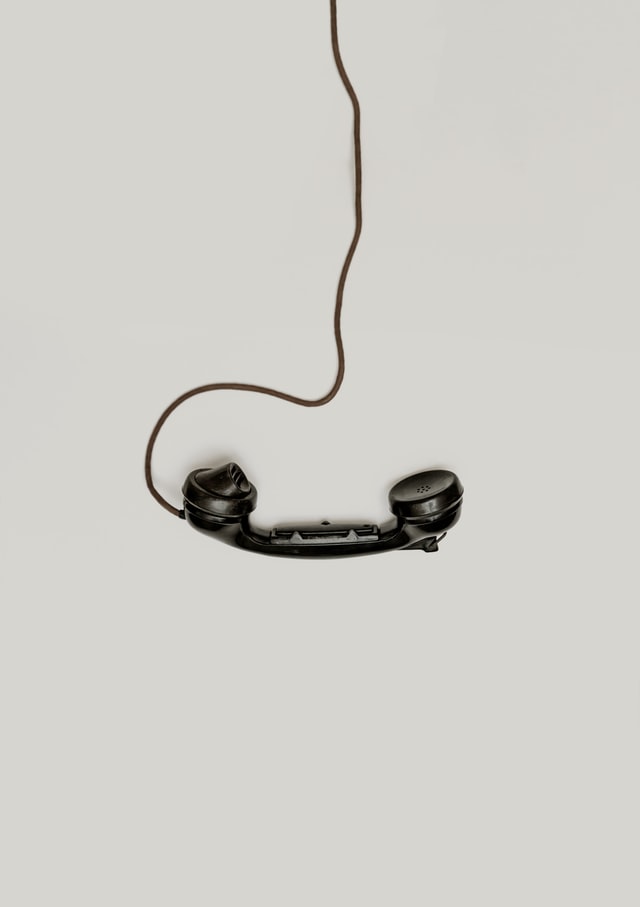Working with a recruiter can be difficult. There is a lot of waiting for information, calling to follow up, emailing to determine what your status is in the interview pipeline. And of course, not all recruits are as transparent or as responsive as you would like.
The flip side is that you should understand that most recruiters are dealing with numerous candidates, many of whom are non-responsive, troublesome, and time consuming. So, even if you’re a stellar candidate, remember that your recruiter is busy with many people who simply are not as professional as everyone should be.
That said, when you do get an email or LinkedIn message from a recruiter looking to schedule a call, what does that mean? Is it a surefire way to know that you’re not getting the job? Or that you won’t be called in for a second interview. Not necessarily.
Why Would a Recruiter Schedule a Call?
There are multiple reasons why a recruiter might schedule a call. It’s pessimistic to think that the only reason you are going to get a call is that they want to reject you. That’s not the case.
However, it’s also not pragmatic to not understand that recruiters do oftentimes schedule a rejection call.
The reason that they do this is that a call is seen as more personal than a text or an email. So, if you have a long standing relationship with the recruiter, or if the interview process has been extremely drawn out then it might be the case that they want to break the news over the phone.
The idea of scheduling the call has to do with making sure you’re not in the midst of something else while they speak with you. They want you to be settled and ready to listen and also ask any questions you might have.
Of course, on their end, it’s also a business like move. They can schedule a call with you at a predetermined time so that they have it marked on their calendar or their internal applicant tracking system.
Remember, most recruiters are involved in scheduling a number of interviews, so it’s important that they keep track of everything using a calendar or other system. While you might only be going on a single interview, that’s not the case with the recruiter you’re dealing with.
So, a recruiter would schedule a call to keep track of the work they have to do.
Do Recruiters Usually Call to Reject ?

That depends upon the recruiter, and sometimes it depends upon the staffing agency. Some recruiters prefer to send rejection emails, while other recruiters like to make a personal call.
However, if your recruiter doesn’t happen to make rejection calls, but instead sends rejection emails, it might very well be the company policy. It’s important to remember that recruiters are not in charge of the agency policy. The directors and c-level employees (chief operating officers, C.E.Os) are the ones who make that call.
Sometimes a recruiting agency will have a strict policy of not communicating except in writing. That is often the case due to fear of legal ramifications. It’s important to remember that while you might be a professional of sound mind, recruiters everywhere know that many are now. There are countless unwell and disgruntled people who seek to bring lawsuits against every organization that they believe offends them.
And while your recruiter might know you to be a normal person, their boss doesn’t care and will make them stick the same email protocol.
So, there’s no easy answer to the question. Some recruiters usually call to reject someone, other recruiters will only email. And you can’t tell ahead of time.
Why Don’t All Recruiters Call To Break Bad News?
Basically, there are two reasons why a recruiter would choose not to call to break bad news.
The first is company policy. We covered that in the section above. What is occurring in these situations is that the recruiter is following the dictates of their employer. For reasons having to due with legal protection, all communication with regards to job acceptance or rejection needs to be communicated via email.
The second reason that someone would not call to break bad news and give a rejection is that they like to keep it professional. While you might be a clear-headed person, most are not. Ask any recruiter who has worked for more than a few months, and they will have stories about people crying on the phone, breaking into hysterical sobs, or people who scream and threaten violence. Others claim that they were discriminated against and want to sue everyone that they have dealt with. In brief, the majority of people are not professional, and it keeps everything easier to simply email them so as to not have to deal with their various episodes.
The fact remains that the majority of people who deal with staffing agencies don’t appreciate the business end of the agency. Recruiters are not all powerful people who can give you jobs. At most, they are those people who can connect you with companies that are looking for work—it’s the company who determines if you will work there.
The people who run the recruiting agencies make the lions share of the profit (90-97% of the profit on each placement). Recruiters have very little power when it comes to determining how to break the news to you. The simply follow the dictates laid out by the corporate interests who run the agency.
And trust me, while recruiters oftentimes are hard working people who get to know their candidates on a human relationship level, the corporate leadership who runs recruiting and staffing firms views all candidates as cattle and could care less what they think, feel, or accomplish. It’s hard, but it’s important to understand.
Is a Scheduled Call Always a Rejection?
No, a scheduled call is not always a rejection. In fact, sometimes a scheduled call is great news! In fact, most recruiters prefer to tell people they have gotten the job over the phone.
Whereas it might be easier for a multitude of reasons to simply email someone that they have been rejected (or simply not gotten the job) it’s preferable to call them if you have good news.
Why? Well, first off, there is no negative emotions attached to that call.
But more so, it’s a speed issue. You will want the person to learn immediately that they have been selected for a role. This is especially true with people who are highly desirable and might have interviews in multiple places. You want your candidate to know asap and take the role and be excited!
The longer the wait, the more likely it is that they will get a job elsewhere. Recruiting, after all, is much about speed. If you wait, you’re going to lose out on placements.
Also, it is important to hear if there is any trepidation in the persons voice. That can be something that doesn’t come across in email.
Most recruiters will have stories about people who sound less than enthusiastic about being offered a job, only to take the job and then no-show. These people are all too common in the workplace, unfortunately. This is what makes recruiting a very difficult job.
So, most recruiters will schedule a call with someone to inform them that they got the job. Even if the company policy is to email, they will call first. That’s because they want to know for a fact if the person sounds excited. Because, let me tell you, someone who sounds blasé about being offered a job is someone a recruiter will feel very strongly about.

Hey I’m Chris . 20+ years in the industry. I’ve worked every role from Executive recrutier to Agency founder and consultant. If you want to learn more or reach me,vist the about page or use my contact form.

